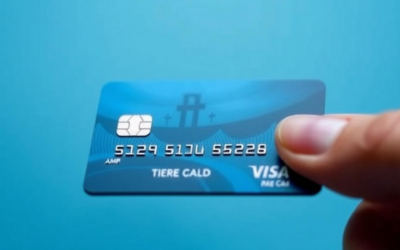Why CHAPS is the go-to payment method for large business transactions
Struggling to make large, time-sensitive payments without any delays or errors? Understanding CHAPS (Clearing House Automated Payment System) is crucial for businesses that need to move significant sums of money quickly and securely within the UK. Knowing when and how to use CHAPS can help ensure your transactions are efficient and reliable, especially in critical situations where timing is everything. Now, let’s break down how CHAPS works and when it’s the right choice for your payments.
What exactly is CHAPS?
CHAPS, which stands for Clearing House Automated Payment System, is a fancy name for a straightforward service. It’s a system that lets you transfer large amounts of money quickly and securely within the UK.
Imagine you need to move a big chunk of cash—maybe to buy a house or make a significant business payment. CHAPS ensures that your money gets where it needs to go on the same day, usually within just a few hours.
A brief history
CHAPS has been around since 1984 and has become a crucial part of how big money moves in the UK. Today, it’s managed by the Bank of England, making it a trusted choice for important payments that need to happen quickly and without a hitch.
How does CHAPS work: A step-by-step guide
Making a CHAPS payment is pretty straightforward. First, you tell your bank that you want to send money through CHAPS. You can do this either by visiting your bank or using their online banking service. You’ll need to provide the recipient’s account number, sort code, and the amount you want to send.
The process
Once your bank has all the details, they’ll check everything to make sure it’s correct. After that, the money is sent directly from your account to the recipient’s account through the CHAPS system.
There’s no middleman involved—just a direct transfer, which is why it’s so quick. Typically, the whole process is done in a few hours if you make the payment before the bank’s daily cut-off time.
For example, let’s say you’re a business that needs to pay a supplier today. By using CHAPS, you can be confident that the money will reach the supplier’s account the same day, helping you avoid any delays that could cause problems.
What are the costs of using CHAPS?
Using CHAPS does come with a fee, usually between £20 and £35 per transaction. The exact cost can vary depending on your bank and whether you make the payment online or in person at a branch. Generally, it’s cheaper if you do it online.
Is it worth it?
This fee might seem high, especially when compared to other payment methods like BACS or Faster Payments, which are often free or much cheaper. But with CHAPS, you’re paying for speed and security. When you need to move a large sum of money quickly and can’t afford any delays, the cost is often worth it for peace of mind.
So, while CHAPS isn’t the cheapest option, it’s a reliable one when time and certainty are critical.
How long does a CHAPS payment take?
One of the best things about CHAPS is how fast it is. When you make a CHAPS payment, it usually goes through on the same business day, often within just a few hours.
Timing considerations
To make sure it happens that quickly, you need to send the payment before your bank’s cut-off time, which is typically around 3:30 PM. If you miss that deadline, the payment will be processed the next business day.
Speed comparison
Even though CHAPS is fast, things like errors in the payment details or delays on the recipient’s bank side can slow things down a bit. However, compared to other methods like BACS, which can take a few days, CHAPS is still the quicker option. This speed is why it’s often chosen for important, high-value payments that can’t wait.
CHAPS vs. other payment methods: Which is best?
When deciding between CHAPS and other payment methods, it’s all about what you need. CHAPS is great when you need to send a large sum of money quickly. For example, if you’re closing on a house or paying a big invoice, CHAPS ensures the money gets there fast and safely.
Alternatives: BACS & faster payments
BACS is another option, but it’s better for regular payments like salaries or bills. BACS takes a few days to process, but it’s often free or very cheap, making it a good choice for less urgent transfers.
Faster Payments is another method to consider. It’s super quick, usually instant, but it’s typically used for smaller amounts—under £250,000. It’s perfect for everyday transactions but might not be the best for big, important payments.
So, if you’re in a rush and need to move a lot of money securely, CHAPS is your best bet, even though it costs more. If you have more time or are sending smaller amounts, BACS or Faster Payments might be more cost-effective.
When should you use CHAPS?
There are certain situations where CHAPS really shines. If you need to make a large, high-value transaction that has to be completed the same day, CHAPS is likely your best option.
Think of scenarios like buying a house, settling a hefty invoice, or making an urgent business payment. CHAPS ensures that the money gets to its destination quickly and reliably, which is crucial when timing matters.
Alternatives for smaller payments
For smaller or less urgent payments, CHAPS might not be necessary. Other options like BACS or Faster Payments could be more suitable—and cheaper. BACS is great for regular, non-urgent payments like salaries, while Faster Payments is ideal for quick, everyday transactions, especially those under £250,000.
Is CHAPS right for you?
When deciding whether to use CHAPS, consider the size and urgency of the payment. If it’s a significant amount and you can’t afford any delays, CHAPS is worth the cost. However, for routine payments or those where timing isn’t critical, exploring other methods might save you some money.
How to make a CHAPS payment: A simple guide
Making a CHAPS payment is a straightforward process, but it’s important to get the details right. Here’s a simple guide to help you through it.
Step 1: Initiate the payment
Contact your bank, either by visiting a branch or using their online banking service. Inform them that you want to make a CHAPS payment.
Step 2: Provide details
You’ll need to give the bank the recipient’s account number, sort code, and the amount you want to send. Double-check these details to avoid errors.
Step 3: Verify the payment
Your bank will check the information you provided to ensure everything is correct. Once verified, the payment is processed.
Step 4: Confirmation
After the payment is made, you’ll receive confirmation from your bank that the funds have been transferred.
Common mistakes to avoid
One common mistake is providing incorrect account details, which can delay the payment. Always double-check the information before submitting it. Additionally, ensure you initiate the payment before the bank’s cut-off time to guarantee same-day processing.
How secure is CHAPS?
When it comes to security, CHAPS is one of the safest payment methods available. It’s designed to handle large sums of money with minimal risk, making it a preferred choice for high-value transactions.
CHAPS payments are closely monitored and regulated by the Bank of England, which adds an extra layer of security. The system itself uses robust encryption and verification processes to ensure that your money is transferred safely from one bank to another. Once a CHAPS payment is initiated, it’s almost impossible to reverse, adding to its reliability.
Tips for secure transactions
To ensure your CHAPS payment goes through securely, always double-check the recipient’s account details. It’s also a good idea to confirm the transaction with your bank, especially if you’re sending a large sum of money. Following these steps helps you avoid any hiccups during the process.
Final thoughts
CHAPS is a reliable and secure way to make large, time-sensitive payments. It’s best used when you need to transfer a significant amount of money quickly and without any delays. While it’s more expensive than other options, the speed and security it offers often justify the cost. If you’re unsure whether CHAPS is right for your transaction, it’s always a good idea to consult with your bank for personalized advice.
FAQs
What is the difference between a Bacs and CHAPS transfer?
Bacs is typically used for regular payments like salaries and can take a few days to process. CHAPS is faster, often completed on the same day, and is used for larger, urgent payments.
Is a CHAPS payment free?
No, CHAPS payments usually come with a fee, typically ranging from £20 to £35 per transaction, depending on your bank.
Is CHAPS a SWIFT payment?
No, CHAPS and SWIFT are different systems. CHAPS is used for UK-based payments, while SWIFT handles international transfers.
What is the maximum CHAPS payment?
There is no maximum limit for CHAPS payments, so you can transfer as much as needed in a single transaction.
Do all bank accounts accept CHAPS payments?
Most UK bank accounts accept CHAPS payments, but it’s always good to check with your bank to be sure.







